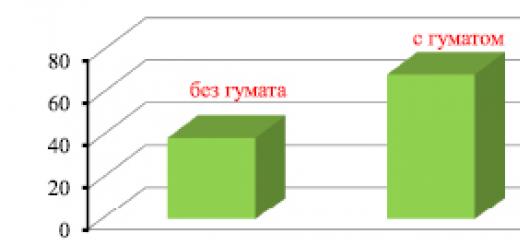Studying at a medical school increases your chances of successfully applying to medical school. Experts note that approximately 95% of medical college graduates become students of medical institutes, and more than half of them enter government-funded places.
Admission to medical college becomes possible after completing 9th grade secondary school. On the basis of incomplete secondary education, training lasts three years and 10 months, then students can take tests for admission to a medical university on a simplified basis. Most of these colleges cooperate with medical higher education institutions or are part of the structure of medical universities.
Submission of documents
Acceptance of documents lasts until August 1. If the required number of students is not recruited, the period may be extended even until the end of September. You will need to provide:
- Certificate 086/у.
- Application addressed to the director of the college.
- Six 3x4 photos.
- Certificate of completion of 9th grade.
- Passport. If not yet issued, then any other identity card.
- Characteristics from your previous place of study (if required).
A very important point when entering is a decent result on the Unified State Exam and high scores in specialized disciplines: chemistry and biology. For any college, a sufficient level of knowledge of the rules of the Russian language is required. In some faculties the requirements are stricter and knowledge of mathematics may be required.
Main specialties
To know how to enter medical college, you should decide on the direction of training. Medical colleges implement training programs in the following specialties:
Exams
You shouldn’t fall into extreme anxiety and constantly wonder how to get into medical college. It is more advisable to thoroughly prepare for the entrance examinations. To begin with, ensure yourself a high GPA school certificate and fill gaps in knowledge of the Russian language and biology. Most likely, upon admission you will need to pass a written exam in the Russian language and an interview in biology. For some majors, biology may include an interview in chemistry or a written exam in algebra.
According to the innovations, applicants entering after the 9th grade are enrolled based on the State Examination results, and graduates of the 11th grade are admitted based on the final Unified State Examination estimates. But the management of most medical colleges provides their applicants with the opportunity to undergo the admission procedure by passing entrance exams. If you are not sure about the results of the Unified State Exam and State Examination, it is safer to prefer the exam option.
Graduates of the 9th grade study on average for 3 years and 10 months, graduates of the 11th grade - one year less.
Studying at preparatory courses at your chosen college will provide effective assistance in admission. Typically the duration of such courses is from six months to a year. If you chose the option of admission based on the results of the Unified State Exam and State Examination, but were unable to pass the competition, do not despair. Medical colleges practice organizing special days when everyone can take entrance exams.
From time immemorial, the profession of a doctor has remained the most in demand and popular in society, and it is for this reason that every year thousands of applicants ask themselves the question of how to enter medical school.
This is not an easy task, due to the fact that each university dictates its own requirements, which can often be vague and unclear for the future student. Nevertheless, the basic criteria for admission are common to all educational institutions. Let's try to figure out how to become a doctor.
What subjects should be taken to the doctor?
 The state has determined the procedure for admission to higher educational institutions (of any profile) based on the results of the Unified State Exam (USE). Medical universities are no exception.
The state has determined the procedure for admission to higher educational institutions (of any profile) based on the results of the Unified State Exam (USE). Medical universities are no exception.
For medical specialties (medicine, pediatrician, dentist), the following list of exams that must be taken is determined:
- chemistry– the highest priority area for testing the applicant’s knowledge. It is impossible to do without chemistry;
- biology– second priority school subject, the results of which count towards the overall passing score;
- Russian language– the least priority subject, which nevertheless determines the applicant’s score.
Note: specialized mathematics and physics, contrary to popular belief, are not mandatory.
Exams are usually taken centrally by school graduates, however, for certain categories of citizens, institutes can organize individual entrance tests(using your tickets), which are assigned by order of the rector.
If a future physician (or dentist) enters programs that are defined as secondary vocational education in the profile of medical training, then additional tests of psychological qualities are also carried out.
Passing score for medical universities in Russia
 The threshold for the reserve of points based on the sum of three exams for the specialization “General Medicine” is traditionally quite large and Almost none of the universities falls below the bar of 250 points.
The threshold for the reserve of points based on the sum of three exams for the specialization “General Medicine” is traditionally quite large and Almost none of the universities falls below the bar of 250 points.
A significant contribution to the threshold of points that must be overcome is made by the competition of the institute and the popularity of this faculty.
Behind this year list of points for admission to places financed from federal budget, among the most popular institutions, was distributed as follows:
- Russian National Research Medical University named after. Pirogov– lower limit 271 points.
- First Moscow State medical University them. Sechenov– the lower limit for admission to a free place is 269 points.
- Moscow State Medical University named after. Evdokimova requires an applicant to score 258 points to participate in the competition.
- Kursk State Medical University has a bar of 251 points on the Unified State Examination.
It is worth noting: The bar for extra-budgetary places is traditionally much lower and is in the range of 140-160 points for the most popular universities.
Admission after medical college
 Admission to a medical university after final exams after medical school in a secondary specialized education program does not give the applicant any advantages.
Admission to a medical university after final exams after medical school in a secondary specialized education program does not give the applicant any advantages.
After completing your studies, you will have to pass the unified state exam along with other applicants and take part in the competition on a general basis.
Student enrollment also occurs on a general basis, for the first year. There is also no provision for correspondence courses.
There is an opinion that additional training in college will allow you to better prepare for the specialized subjects required to obtain higher education majoring in general medicine, but this is not true.
The standard of secondary education places maximum emphasis on applied disciplines (using books for practical training), with virtually no mention of general educational issues.
After what grade is it better to enter medical school?
 To enter a medical college, it is enough to master the program that completes the 9th grade of the general education school standard.
To enter a medical college, it is enough to master the program that completes the 9th grade of the general education school standard.
If you plan to enter a medical higher education institution, then the best option would be to prepare for 11 classes, of which the last two are designed for in-depth study specialized natural science subjects.
What the cost of studying
 For the capital region, the top line in the ranking is occupied by Moscow State University them. Lomonosov, where the price level for a year of study in the specialization “General Medicine” is 400,000 rubles.
For the capital region, the top line in the ranking is occupied by Moscow State University them. Lomonosov, where the price level for a year of study in the specialization “General Medicine” is 400,000 rubles.
The average cost of training to become a doctor in other universities in Moscow is 288,000 rubles per year. You cannot study by correspondence.
For regional universities, the price bar is slightly lower and ranges from 100,000 to 200,000 rubles, varying depending on the region and the rating of the institution.
For example, a year of training in a medical specialty (ophthalmologist, surgeon, dermatologist, etc.) at Kursk State Medical University is 122,000 rubles.
Is it difficult to get into medical school on a budget?
 Is it difficult to enroll? This is an eternal question, in which the personal and mental characteristics of the applicant play a decisive role.
Is it difficult to enroll? This is an eternal question, in which the personal and mental characteristics of the applicant play a decisive role.
Good mastery will be a big plus school curriculum(including studying specialized literature), the ability to memorize large amounts of information, completing preparatory courses at the chosen university.
You need to understand that competition for admission to medical universities is always high and the applicant is required to show truly exceptional knowledge in specialized subjects.
Upon admission, most educational institutions take into account the applicant’s personal achievements, which, however, will not be able to make a significant contribution to the sum of points:
- achievements in sports events - victories at world and European championships, titles of masters of sports, etc.;
- availability of a certificate of basic (secondary) education confirming a silver or gold medal;
- possession of an incoming high school diploma vocational education with excellent grades;
- prizes and victories at specialized school competitions.
These additional opportunities will help with admission, but the decisive factor is still the total score on the Unified State Exam.
Targeted admission to medical school
 Targeted admission is carried out within the framework of a concluded agreement with the sending organization, which pays for the student’s education in exchange for an obligation to work for a certain number of years.
Targeted admission is carried out within the framework of a concluded agreement with the sending organization, which pays for the student’s education in exchange for an obligation to work for a certain number of years.
The number of people that each medical university admits to target places is determined by a quota established by the Ministry of Health Russian Federation.
After submitting applications from organizations, as well as when the competition reaches 1.2 applicants per quota, the university organizes a separate competitive selection among those who applied. The results of the Unified State Examination are taken into account, however, the passing score is almost a third lower than the overall score.
If a person does not pass the competitive selection for the target place, he can participate in the general competition using his state exam results.
TOP 10 medical universities in Russia
 According to the ranking of universities by medical specialties, the first two leaders are located in the capital region:
According to the ranking of universities by medical specialties, the first two leaders are located in the capital region:
- First Moscow State Medical University named after. THEM. Sechenov(Moscow), rating – 7.8/10;
- Russian National Research Medical University named after. N.I. Pirogov(Moscow), rating 7.4/10;
- KazSMU(Kazan), rating 6.7/10;
- Northern State Medical University(Arkhangelsk), rating 6.5/10;
- Orenburg State Medical University(Orenburg), rating 6.5/10;
- Siberian State Medical University(Tomsk), rating 6.3/10;
- SamSMU(Samara), rating 6/10;
- Moscow State Medical and Dental University(Moscow), rating 6/10;
- ISMU(Irkutsk), rating 6/10;
- SarSMU(Saratov), rating 5.8/10.
As seen, regional institutions are not inferior in rating to those in the capital, however, the competition for such institutions is often lower and it is easier to get into them.
Documents for admission
 When submitting an application, keep in mind that a set of additional documents will also be required - without them, the application will not be accepted:
When submitting an application, keep in mind that a set of additional documents will also be required - without them, the application will not be accepted:
- a document that proves the identity of the applicant. In addition, this document must contain a note confirming citizenship of the Russian Federation. A passport is best;
- confirmation of successful completion of a secondary or secondary specialized education program (established state standard);
- documentary evidence of the results of the Unified State Exam;
- two photographs of the applicant;
- documents defining the applicant’s benefits;
- an application that must contain the applicant’s personal data (last name, first name and patronymic), as well as all data on the above points.
In addition to these documents, it is possible to provide papers that confirm the applicant’s right to priority admission (for example, a document confirming winning a prize at a specialized Olympiad), or to use a special right (the presence of a contraindication to participation in a general competition). These documents are provided at the discretion of the applicant.
Conclusion
Admission to the specialization “General Medicine” often seems like an insurmountable obstacle for many applicants, however, the conditions under which universities admit students to the Faculty of Medicine are quite simple and understandable.
The main thing for an applicant is to focus on passing the exams and show your best results.“Is it realistic to do it?” — the answer to this question is, of course, “Yes,” subject to the proper commitment.
So how? enter medical school?
Some advice from someone who has successfully dealt with this.
1. Getting into medical school requires passion. want. Longing to be a doctor. You should not be driven by the desire to have a prestigious medical diploma, or by the desire to follow in the footsteps of your father or mother, continuing the medical tradition of the family. You should sleep and see how you treat sick tummies, save people from death, operate with the risk of contracting hepatitis B or D, perform a medical feat as a village doctor. Perhaps you want to study thousands of surgical nodes, or develop a new model of a prosthetic arm, or transplant hearts, or save human beauty after a burn disease. If anyone can dissuade you from going to medical school, don't go.
2. Suppose you are dreaming and see yourself as a medical university student. You are attracted to romance white coat, and the Hippocratic Oath seems so solemn to you. Then your path is cramming. Cramming on the subway, cramming at home, cramming at school. Cramming with a tutor. Think, understand, analyze, solve problems, write down constants, laws and rules in special notebooks, carry them close to your heart, read with fanaticism, buy expensive textbooks, read more than you need according to the program. Study the program inside and out.
3. Go to the university you want to enroll in a year or two before admission. Go there during the abitur period (and not to the sea with mom and dad). Go to admissions committee, take the list of recommended literature there and methodological manuals, issued by teachers of this university. Visit a bookstore or store at a medical school. Listen to your heart - does this whole atmosphere touch you? Go on a tour. Ask a student to take you to a museum on campus or to a laboratory. Talk to those who entered: one, another, the third. Find out the specifics of admission to this particular university.
4. Prepare every day. Every day, little by little, move towards your goal. Quantity turns into quality. Get everything out of yourself. Pass the Unified State Exam maximum score. Make it inevitable that you will get into medical school..
Should I pay a bribe to get into medical school?
Of course you pay! Especially if mom and dad have money. If you light up, they will milk you, carefully passing you from hand to hand, like Burenka or Zorka, from one pulpit to another.
Although, which is typical, practically no bribes were taken from us. The teachers were too principled. I still remember one. Her gaze was intent, unblinking. It was impossible to write it off. And if you didn’t know something, then it was your and only your problems. You had to cram without drying out, like every doctor has to cram for six years!
By the way, the average memory scores of graduates of a medical university are among the highest compared to universities in other areas. Long years of cramming and the inability to miss seminars and lectures, many hours of homework every day - this is the basis of everything in medicine.
Recipe for admission to medical school:,
from 90 points on the Unified State Exam in biology,
from 90 points in chemistry,
from 90 points in Russian.
Prepare every day.
A higher medical education institution is one of the most difficult obstacles for applicants to overcome on the path to acquiring knowledge. Before entering a medical university, you should specifically and objectively determine for yourself whether the profession of a doctor is your calling or not. From a practical point of view, it is best to do the following: go to a couple of hospitals and explain to the doctors the situation that you want to enter a higher medical school and want to understand from a practical point of view whether you need to practice medicine or not. The profession of a doctor is very difficult, but, nevertheless, it is possible to master it. Although there is a lot of frightening information, both on the Internet and in the media, about how incredibly difficult the everyday life of a doctor is, because of which a considerable number of applicants who wanted to try to enroll in medical university, change their minds, but for many it is worth it.
Details
What exams are required to pass to enter medical school?
If you see yourself as a medical professional in the future, make medicine your profession, if you are attracted to the work of a nurse or paramedic, you will have to take exams at a medical school in the near future.
Details
Is it difficult to get into medical school?
Medical universities are among the most prestigious universities country, and therefore the competition for a place is very large. Is it difficult to get into medical school? Yes, it is difficult, however, as in many universities of other profiles in the Russian Federation. A university is one of the highest standards in a person’s life, but if you overcome it, radically new opportunities open up. When an applicant submits his documents for admission, there are exactly two possible outcomes: the applicant will either get in or not get in. Whether to enroll or not depends 90% on the applicant himself.
Details
Medical Academy Exams
Examinations for the medical academy are held among applicants in the age category 16–22 years. For military personnel, the age limit has been pushed back to 2 years. The state of health must be satisfactory; tests are carried out in July. Unified State Exam results For many establishments this profile is not enough.
Details
How to enter a medical academy?
The Medical Academy is a higher education institution. Since medical academies provide higher specialized education, then the competition for applicants is quite high. As for statistics, the number of people per place coincides with the statistics of medical universities. From a practical point of view, statistics do not matter. For example, enrolling in any agricultural university is not difficult compared to any medical university. Many universities in the country, in order to improve their economic condition, have opened and are opening new faculties, providing applicants with new specialties. Concerning medical academies, then everything here is very simple and strict: new specialties are not opened, and old ones are not reduced.
Details
Admission to medical university
Medical University - highest level specialized medical education. Before taking the first steps towards obtaining a higher specialized medical education, you need to accurately and thoroughly determine for yourself whether medicine is your calling or not. There is a lot of different information on this topic in the media. Some people advise going and asking a current doctor how he works.
Details
When a young man graduates from school, he is faced with the difficult task of choosing what he wants to become. When a graduate wonders whether to go to medical school, he must realize what advantages there are and what disadvantages he should beware of.
Details
How to enter medical college?
Medical College provides secondary specialized medical education. Secondary medical education involves direct specialized patient care. If you are firmly confident that you will cope with the assigned responsibilities, then you can confidently begin to prepare for the upcoming admission.
Details
Preparing for admission to medical school
Preparatory stage in high school medicine is the most difficult process for an applicant. If we are talking about the specifics of preparing for admission to a medical university, then you have finally decided on the choice of educational institution.
And today we will talk about doctors.
A doctor is one of the most noble professions. Despite the low wages, in Russia it is considered the most prestigious.
Saving human lives, receiving gratitude from rescued patients and their relatives, seeing joyful smiles all around - what could be better?
But there is also the other side of the coin: constant stress, very frequent overtime, the need to constantly be ready to provide help, the ability not to let other people’s pain pass through your heart, a firm hand and iron self-control.
However, if you are reading this article, it means you have already decided who you want to become in this life. Our task is to help you and tell you everything about how to enter a medical school/university (on a budget or a paid department), what subjects you need to take, what documents you will need.
Here you will find out whether it is difficult to enter a medical school and which educational institution to choose.
What exams will you have to take?
If you feel that this is your calling, be prepared to overcome difficult obstacles, the most important of which are exams.
The first thing you need to get into medical school is excellent knowledge of chemistry and biology. For those entering medical universities, these are specialized disciplines, and preparation for passing them should begin long before the exam.
Ideally, you need to decide on a profession in the 9th-10th grade so that you can begin to study subjects intensively. In this case, the student will have some time left to catch up and understand what is not clear.
If you have decided which medical school to enroll in, we recommend visiting it in advance and communicating with local students. This way you can look at everything from the inside educational process, familiarize yourself with the list of exams required for admission and become more familiar with them.
So, for admission, an applicant will need to pass the Unified State Exam in the following subjects:
- Russian language,
- biology,
- chemistry.
How to prepare for exams
Most medical universities operate two-year training courses. During classes, university teachers coach students to pass exams.
What are the benefits of such courses?
- The student is completely immersed in the university environment.
- Meets future teachers.
- Can understand in advance whether the chosen focus is suitable.
But usually such courses are expensive.
However, there are also express courses that last a couple of months. They will not so much explain as test knowledge.
If you cannot afford to spend large sums on tutors or such courses, find out if the university of your choice offers the opportunity to attend preparatory classes remotely.
Upon delivery unified exam in Russian, chemistry and biology, not only how well the applicant is prepared in these disciplines plays a role, but also the number of points scored in Unified State Exam time. Often the minimum bar in medical universities is 50 points in specialized disciplines.
The number of points will play an important role in deciding which form of education to send the student to - paid or budget. Depending on the state order, each state university is very limited in budget funding, which is why there is such a big competition for places.
 Tuition fees at the selected university can be viewed on the educational institution’s website
Tuition fees at the selected university can be viewed on the educational institution’s website What documents are needed for admission?
Before entering a medical school, you need to collect a list of documents required by law. The list is the same at all universities:
- application of the applicant;
- A completed application form;
- certificate of completion of secondary education;
- Unified State Examination results;
- original passport and copies;
- 2 photographs 3*4, signed in pencil on the reverse side;
- medical certificate in form 086-u;
- if there are benefits, documents confirming the right to receive them.

Which medical universities should I apply to?
If you have decided on a profession, but cannot choose a university, pay attention to the criteria for choosing a university:
- Territoriality. Usually, the location of the applicants plays a huge role in whether it is worth enrolling in a medical school in Moscow or in St. Petersburg Medical University. There are about 40 medical universities in the Russian Federation, located in different regions of the country. This allows students to stay as close to home as possible rather than traveling thousands of miles away.
- Prestige of the university. Applicants especially like the Moscow “tower” and the St. Petersburg Medical University. Universities in Smolensk, Ivanovo, and Kursk are also valued. Although the quality of education is the same everywhere, in these places, due to promotion, the competition will be much higher than in Khabarovsk, Tomsk, Irkutsk.
- Developed infrastructure. It is worth finding out in advance how the buildings at the chosen university are located, whether there are dormitories, living conditions and the opportunity to get into them, what kind of leisure activities are organized for students and everything related to programs for the harmonious development of personality.
- Additional Information. Undergraduate students recommend that applicants find out in advance about Teaching Staff, are there laboratories, hospitals and clinics with which the university cooperates, libraries, or its own Internet resource. Even the presence of a morgue is an important indicator, because it is the main supplier of anatomical materials, without which it is impossible full training students.
Top medical universities in Russia
More than 40 universities across the country provide the opportunity to enroll in a medical school not only in Moscow, but also in the regions.
- First Moscow State Medical University named after. THEM. Sechenov;
- Russian National IMU named after. Pirogov;
- State Medical and Dental University.
Here are the medical universities that are considered the most prestigious in St. Petersburg:
- State Medical University named after I.P. Pavlova;
- State medical Academy named after I.I. Mechnikov.
Among the leaders are also universities in Kursk, Yaroslavl, Ufa, and Ivanovo.
Is it difficult to get into medical school to become a doctor?
If by the time of admission you have not yet begun to understand chemistry and biology, you should not even try. It is better to postpone until next year, and devote this time to studying the most important disciplines for medicine.
To become a doctor, you need to have the skills to memorize a large amount of information. If you have a bad memory, you need to train it in advance, otherwise you simply will not be able to cope with the flow of information that will be dumped at the university.
High scores on the Unified State Exam do not guarantee admission. For training on a budget, in addition to the results of a single exam, diplomas and prizes for participation in olympiads, competitions, and conferences are taken into account.
Universities are also impressed by students with an active lifestyle, achievements in sports or social activities.
If the student and his family have a difficult financial situation, proof must be provided. The university leadership can accommodate this.
Is it possible to enter medical school without good preparation? Hardly. Will it be possible to pass the competition without the Unified State Exam? No. So study, work on yourself and overcome any difficulties.
If your active preparation is hampered by constant school assignments (essays, tests, reports), you can always rely on the help of the student service. At least with them you will have a chance to approach the application without nervous exhaustion.










